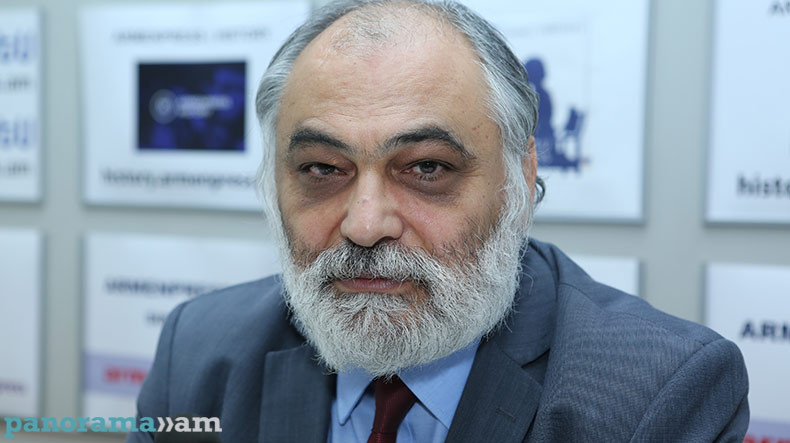
Expert: Armenian people once again affected by US-Turkish deal
The fate of the resolution recognizing the Armenian Genocide in the Ottoman Empire was determined during the behind-the-scenes talks between the United States and Turkey, culminating in a Trump-Erdogan meeting in Washington in attendance of Senator Senator Lindsey Graham who blocked the genocide bill hours after the meeting, turkologist Ruben Safrastyan told a news conference on Friday.
Safrastyan, who also heads the Institute of Oriental Studies of the National Academy of Sciences, stressed Graham is known as one of the staunchest allies of Trump.
“Once again, a deal was struck between the United States and Turkey, which undermined the furtherance of a resolution anchored on historical justice and morality. The Armenian people, our national problems and those national minorities which are related to Turkey are affected by this deal,” Safrastyan said.
The expert stressed the need to make efforts to have Senator Lindsey Graham at least revote his veto, since the genocide bill cannot be brought to a vote if blocked.
According to Safrastyan, the deal primarily concerns the hottest issue in Turkish-American relations today – the purchase and deployment of Russian anti-aircraft defense systems by Turkey, which the parties have decided to put aside for their representatives to come to an agreement.
He says after the meeting, Erdogan stated that the US had agreed in principle to sell Patriot missile defense system to Ankara, which means that there has been some change in America’s approach on the matter. The second issue covered by the deal, according to Safrastyan, is related to the Kurds and the oil fields.
“The United States will continue to hold control over the oil fields in Syria, mainly to the east of the Euphrates, which are populated by Kurds. The US is estimated to receive $30 million a month in profits, the revenues from which, as Americans claim, are directed to helping Kurds. Oil is extracted and sold, presumably via Turkey. Here is the oil problem, but there is also the Kurdish problem; Turks and Americans are likely to have agreed that the Kurds should be removed from the Turkish-Syrian border and concentrated in the areas where the fields are located to pave way for the establishment of some kind of quasi-autonomous unit under the US control when the real Syria settlement process begins,” said Ruben Safrastyan, adding that these are the issues that have been discussed and agreed on during the Trump-Erdogan talks.
According to the speaker, this new phase in Turkish-American relations also receives NATO’s approval.
Related news
- Expert: Armenian Genocide resolution still stands a chance in Senate despite blockade
- Senator Graham explains why he blocked Armenian Genocide resolution
- Expert: Senator Graham blocks Armenian Genocide resolution
Newsfeed
Videos






























